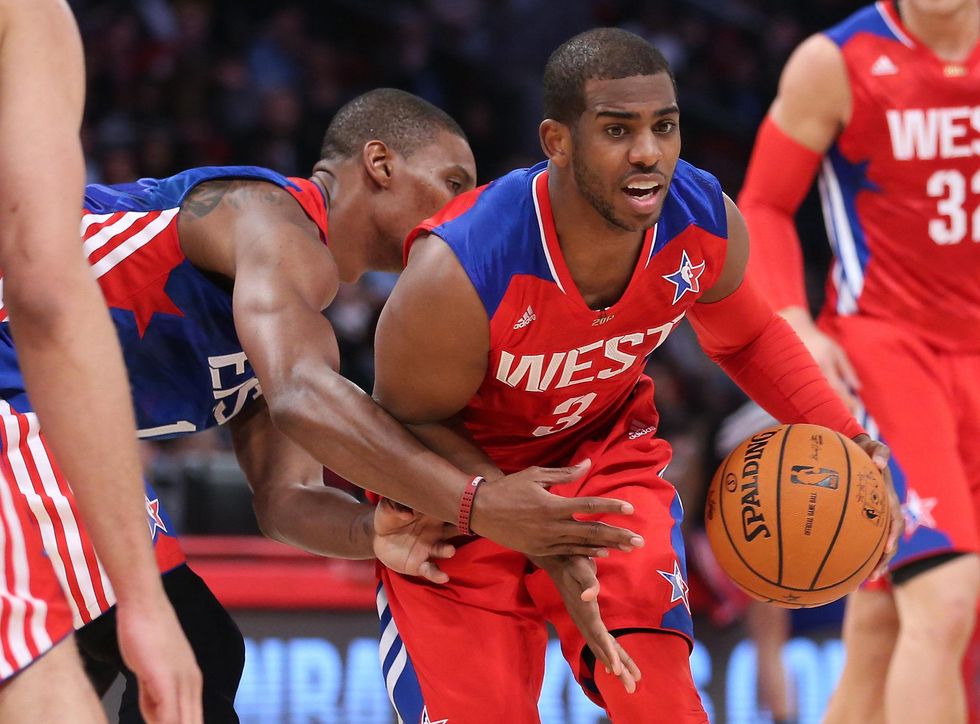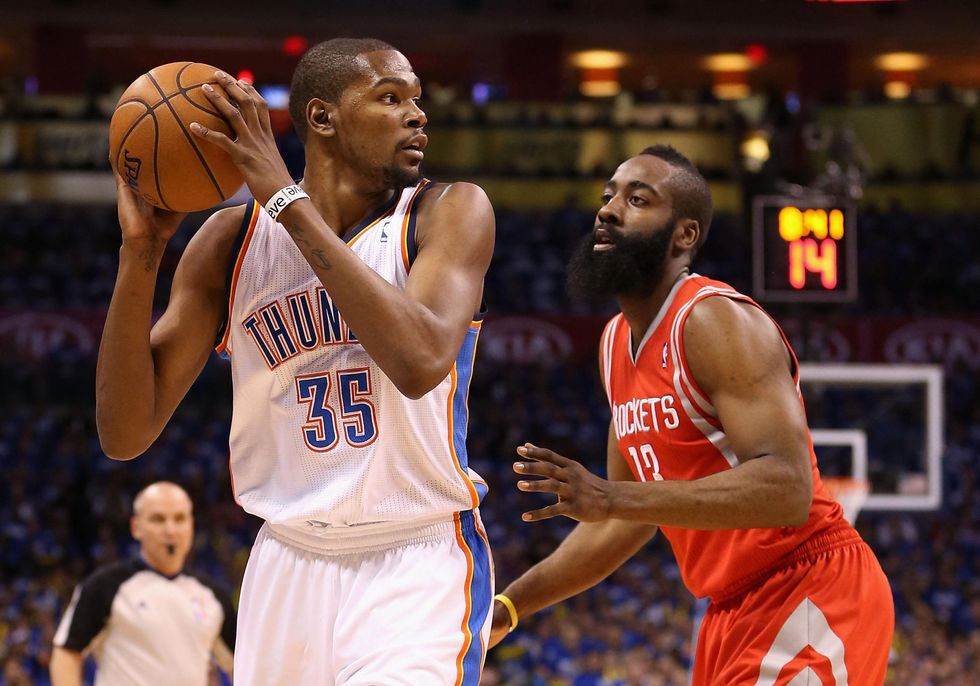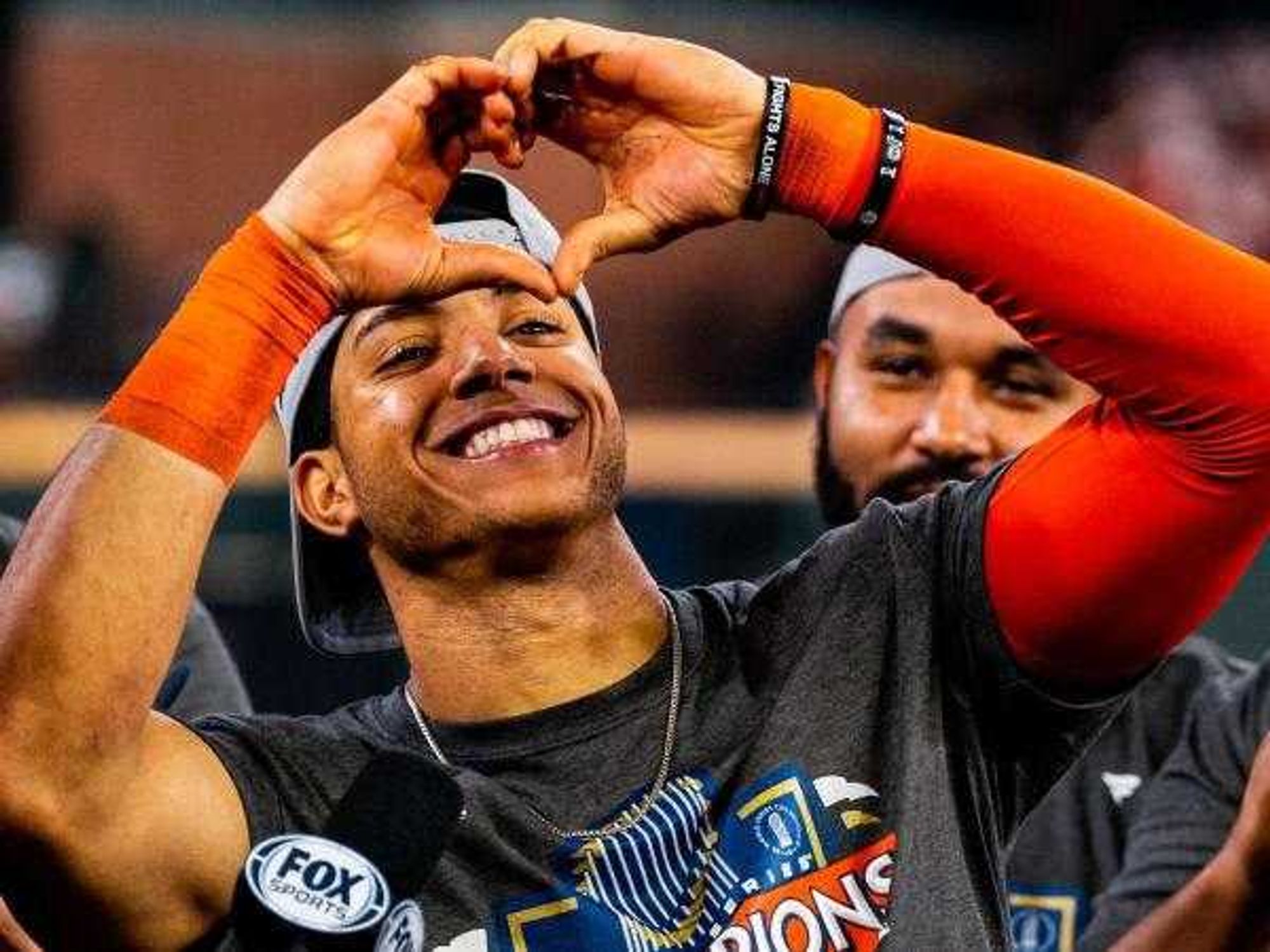Inside Hoops
Forget Steve Blake's fluky dagger, Chandler Parsons is the real key to remaking the Rockets' D
Los Angeles Lakers guard Steve Blake was credited for unsheathing the dagger that silenced the Houston Rockets in their 99-98 loss to the Lakers at Toyota Center on Thursday night, but in truth his game-winning 3-pointer with 1.3 seconds remaining was the embodiment of affixing a bow atop another Rockets package of miserable perimeter defense.
Two nights earlier the Rockets acquiesced to the Portland Trail Blazers a white-hot start at Moda Center before fashioning a second-half rally to victory. Earlier that road trip the Rockets were victimized by the wizardry of Los Angeles Clippers point guard Chris Paul and the sharpshooting of J.J. Redick while stumbling through their first loss of the season.
If the Rockets are to transition from blabbering about exceptional perimeter defense to actually showcasing it, Parsons must be their linchpin.
The common strand linking those three performances was the Rockets' sieve-like perimeter defense, a point of emphasis discussed at length during the preseason by Rockets guards James Harden and Jeremy Lin.
Rockets forward Chandler Parsons has contributed to the narrative of the Rockets' desire to improve their perimeter defense, and given his combination of size, athleticism and repute, Parsons is a burgeoning authority on the topic of defense. If the Rockets are to transition from blabbering about exceptional perimeter defense to actually showcasing it, Parsons must be their linchpin.
"Be the best defender on the team," Parsons said in initiating a screed of individual defensive goals for his third season in the NBA. "Guard the best player on the other team. Lead by example every single game on that end.
"Make sure everyone is in the right spot. Make sure everyone knows principles and personnel before a game. Be that voice out there on the defensive end."
For Parsons, defensive capability isn't the issue. As an unheralded second-round pick out of Florida, Parsons was named to the 2012 NBA All-Rookie Second Team largely on the strength of his perimeter defense. And while his traditional statistics were impressive — Parsons averaged 4.2 defensive rebounds, 1.5 steals and 0.6 blocks per 36 minutes in 2011-12 — his defensive impact on the Rockets was clearly noticeable when he wasn't on the floor.
Rockets Impact Player?
Two seasons ago, the Rockets allowed 101.5 points per 100 possessions with Parsons on the floor and 103.0 points per 100 possessions with him on the bench. They held opponents to a lower shooting percentage with Parsons on the floor (45.1 percent) than they did when he wasn't (46.2 percent), and allowed fewer rebounds (42.4) with Parsons than without (45.4). For a team lacking an identity and mired on the mediocrity treadmill, Parsons' defensive impact helped bridge the gap between a sub-.500 record and the Rockets finishing 34-32 to extend their streak of winning seasons to six, the second-longest in franchise history (The Rockets posted their seventh consecutive winning record in 2012-13 and matched the mark set from 1990-97).
That uptick in offensive responsibility had a negative impact on Parsons' defensive productivity.
But a funny thing happened on the way to relevancy for the Rockets last season. The additions of Harden and Lin elevated the Rockets' national profile and Parsons seized the opportunity to establish himself as a budding star and viable offensive player.
After finishing seventh on the team in scoring average (9.5 points per game) and eighth in usage rate (16.7 percent) as a rookie, Parsons was second only to Harden in scoring last season at 15.5 points per game. His usage rate of 18.3 percent was fourth behind Harden (29.0 percent), Lin (20.8 percent) and Carlos Delfino (18.6 percent) among players who started and finished the season with the Rockets.
That uptick in offensive responsibility had a negative impact on Parsons' defensive productivity.
The Rockets still allowed more points per 100 possessions without Parsons (104.2) than with him (103.2), but the net margin shrank by half a point. Opponents not only shot a better percentage with Parsons on the floor (45.5 percent) than with him on the bench (45.2 percent), the Rockets actually had a superior net rating with Parsons on the bench (4.7) than with him on the floor (2.6). During Parsons' rookie season, the Rockets' net rating was positive with Parsons in the game (+2.7) and negative while he earned rest (-2.0).
Those modest declines defensively were a reasonable reflection of Parsons' expansion of his offensive game, but they didn't necessarily represent an abandonment of his defense-first identity.
"Last year I was so worried about offense and pick-and-rolls and having the ball in my hands a lot where I think I did kind of take my eye off defense a little bit," Parsons said. "But I’m mature enough now to understand that I’ve got to do both and I physically can do both.
"I can be a great defender and an efficient offensive player so I’m definitely each game going to come with the mindset of not worrying about my shots. I’m going to be aggressive and I’m going to facilitate and get our team in offense, but I’m definitely going in with a defensive mindset.
"I could have focused a lot more on the defensive end because that really is a mindset for me. That either you have it or you don’t, either you take the time to invest in defense or you don’t make it a priority. You could easily say, yeah, last year I had more responsibility offensively; I exerted all my energy offensively but I’m at the point where I should be able to do both, and I plan on doing both this year."
When Parsons arrived for training camp noticeably thicker, he acknowledged hiring an offseason trainer and nutritionist to help him physically prepare for the rigors of recommitting to his two-way duties. Beyond their offensive exploits, forward LeBron James and Paul George have earned accolades for their individual defensive might, and Parsons' desire to take that next step in terms of national recognition for his all-around talent will entail a renewed focus defensively against the likes of James, George and Kevin Durant, Kobe Bryant and Carmelo Anthony.
Thus far this season the results have been mixed. The Rockets rank 12th in defensive rating but just 18th in opponents' 3-point shooting percentage (35.6 percent). Only the Philadelphia 76ers (with 61) have allowed more 3-point field goals than the Rockets' 58, and after lauding the potential of centers Dwight Howard and Omer Asik working in tandem not only as rim protecting savants but security blankets for perimeter players aggressively attacking the passing lanes, the Rockets still have struggled locating and closing out on perimeter shooters.
While Harden and Lin are the most egregious violators of perimeter defensive principles and execution, Parsons is not without blemish.
Striking that balance between efficient offense and lockdown defense hasn't come easy for Parsons. His turnovers are up and his assists are down from last season, and his shooting slash line is down in all three areas, decreasing from .486/.385/.729 in his breakout second season to .456/.190/.696 through six games. And while Rockets coach Kevin McHale expressed confidence that Parsons would rediscover his shooting stroke — "His offense will come," McHale said — Parsons must remain intently focused on the defensive end, for inherently that is his area of strength.
The Rockets will find their proficiency offensively with Harden and Howard and Lin pacing their attack. If Parsons can provide exceptional defense against the best scorers the NBA, and even occasionally against power forwards serving in short increments as a stretch four, the Rockets' potential as a contender in the Western Conference will prove to be more than lip service.
"You’ve got to come in with the mindset that you’re going to lock your guy down and you’re going to be a great help defender," Parsons said. "We’ve got to come in with the mindset that we’re going to win games even when we do shoot the ball poorly, or me, James and Dwight are going to have off nights. Other people are going to step up.
"We’ve got a deep team and I think my job is to come in every night and set the tone defensively and just continue to be aggressive on the offensive end."


